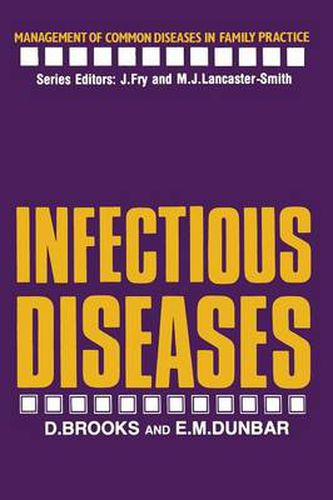Readings Newsletter
Become a Readings Member to make your shopping experience even easier.
Sign in or sign up for free!
You’re not far away from qualifying for FREE standard shipping within Australia
You’ve qualified for FREE standard shipping within Australia
The cart is loading…






This title is printed to order. This book may have been self-published. If so, we cannot guarantee the quality of the content. In the main most books will have gone through the editing process however some may not. We therefore suggest that you be aware of this before ordering this book. If in doubt check either the author or publisher’s details as we are unable to accept any returns unless they are faulty. Please contact us if you have any questions.
DDDDDDDDDDDD Effective management logically follows accurate diagnosis. Such logic often is difficult to apply in practice. Absolute diagnostic accuracy may not be possible, particularly in the field of primary care, when management has to be on analysis of symptoms and on knowledge of the individual patient and family. This series follows that on Problems in Practice which was con cerned more with diagnosis in the widest sense and this series deals more definitively with general care and specific treatment of symp toms and diseases. Good management must include knowledge of the nature, course and outcome of the conditions, as well as prominent clinical features and assessment and investigations, but the em phasis is on what to do best for the patient. Family medical practitioners have particular difficu1ties and ad vantages in their work_ Because they often work in professional isolation in the community and deal with relatively small numbers of near-normal patients their experience with the more serious and more rare conditions is restricted. They find it difficult to remain up-to-date with medical advances and even more difficult to decide on the suitability and application of new and relatively untried methods compared with those that are ‘old’ and well proven. Their advantages are that because of long-term continuous care for their patients they have come to know them and their families FOREWORD well and are able to become familiar with the more common and less serious diseases of their communities.
$9.00 standard shipping within Australia
FREE standard shipping within Australia for orders over $100.00
Express & International shipping calculated at checkout
This title is printed to order. This book may have been self-published. If so, we cannot guarantee the quality of the content. In the main most books will have gone through the editing process however some may not. We therefore suggest that you be aware of this before ordering this book. If in doubt check either the author or publisher’s details as we are unable to accept any returns unless they are faulty. Please contact us if you have any questions.
DDDDDDDDDDDD Effective management logically follows accurate diagnosis. Such logic often is difficult to apply in practice. Absolute diagnostic accuracy may not be possible, particularly in the field of primary care, when management has to be on analysis of symptoms and on knowledge of the individual patient and family. This series follows that on Problems in Practice which was con cerned more with diagnosis in the widest sense and this series deals more definitively with general care and specific treatment of symp toms and diseases. Good management must include knowledge of the nature, course and outcome of the conditions, as well as prominent clinical features and assessment and investigations, but the em phasis is on what to do best for the patient. Family medical practitioners have particular difficu1ties and ad vantages in their work_ Because they often work in professional isolation in the community and deal with relatively small numbers of near-normal patients their experience with the more serious and more rare conditions is restricted. They find it difficult to remain up-to-date with medical advances and even more difficult to decide on the suitability and application of new and relatively untried methods compared with those that are ‘old’ and well proven. Their advantages are that because of long-term continuous care for their patients they have come to know them and their families FOREWORD well and are able to become familiar with the more common and less serious diseases of their communities.